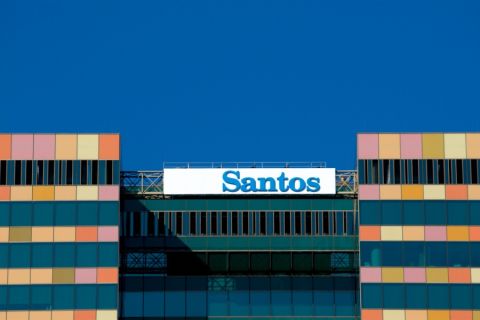Smaller producers have plenty of solid prospects in their portfolios. They also are having trouble finding the equipment and employees to develop them, participants at Dain Rauscher Wessels 2000 energy conference were told. Representatives of Belco Oil & Gas Corp., Denbury Resources Inc. and Plains Resources Inc. said that the waiting time for rigs is growing and may take as long as two months in some areas. Oilfield-service companies' rates are climbing as they try to rebuild their work forces, the producers said. "Labor's going to be one of the biggest challenges going forward," said Grant Henderson, president of Belco. "The industry's just not attractive. In the field, there are more rigs available than there are crews." Unfortunately for smaller producers, their largest competitors tend to have more pull with service companies. "Smaller companies will have trouble," said Greg Armstrong, president of Plains Resources. The service companies play off their relationships and direct rigs to those who always give them business, he said. Denbury president Gareth Roberts said that he even bought cigars for a crew as an extra incentive to get a job done on time. However, he also maintained that if a company is organized with its drilling and development plans, it can work around the labor shortages. "Plan your business well in advance and be patient," he advised the audience. Drilling contractors will need to address the quantity and quality of rigs in the months ahead, as well as a shortage of qualified employees, two executives said during John S. Herold Inc.'s 2000 Energy Pacesetters Conference. Crews pose a bigger problem than rigs, according to Eugene M. Isenberg, chairman of Nabors Industries Inc., Houston. "We bought a lot of units during the down cycle and acquired a lot of equipment. As a result, we have about two thirds of the nonworking inventory," he said. "There is a limited manufacturing capacity. The technical side also is a problem," added Robert Palmer, chairman and president of Rowan Cos. Inc. He noted that there are major differences in the Houston offshore drilling contractor's three generations of Gorilla rigs, and there are serious technical challenges ahead. "People also pose a challenge," said Palmer. "During the last boom, Rowan never put more than two new rigs to work in any year. That saved us when things turned down because we weren't overcommitted." The company tries to hire almost exclusively at the entry level and promote from within. This creates loyal employees and helps to reduce turnover. Isenberg said that Nabors strives to attract and retain employees with competitive salaries and benefits. "I don't believe in shortages in a free market," he declared. "I prefer to invest in qualified employees." -Jodi Wetuski and Nick Snow
Recommended Reading
Brett: Oil M&A Outlook is Strong, Even With Bifurcation in Valuations
2024-04-18 - Valuations across major basins are experiencing a very divergent bifurcation as value rushes back toward high-quality undeveloped properties.
Marketed: BKV Chelsea 214 Well Package in Marcellus Shale
2024-04-18 - BKV Chelsea has retained EnergyNet for the sale of a 214 non-operated well package in Bradford, Lycoming, Sullivan, Susquehanna, Tioga and Wyoming counties, Pennsylvania.
Defeating the ‘Four Horseman’ of Flow Assurance
2024-04-18 - Service companies combine processes and techniques to mitigate the impact of paraffin, asphaltenes, hydrates and scale on production — and keep the cash flowing.
Santos’ Pikka Phase 1 in Alaska to Deliver First Oil by 2026
2024-04-18 - Australia's Santos expects first oil to flow from the 80,000 bbl/d Pikka Phase 1 project in Alaska by 2026, diversifying Santos' portfolio and reducing geographic concentration risk.
Ozark Gas Transmission’s Pipeline Supply Access Project in Service
2024-04-18 - Black Bear Transmission’s subsidiary Ozark Gas Transmission placed its supply access project in service on April 8, providing increased gas supply reliability for Ozark shippers.




